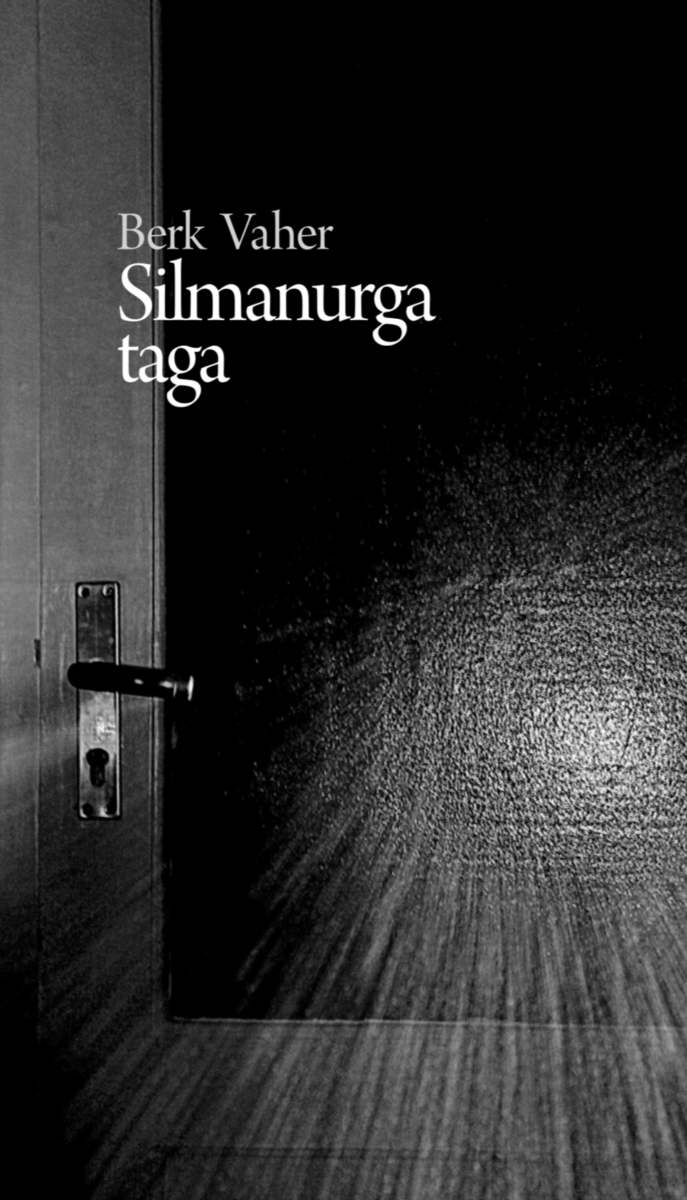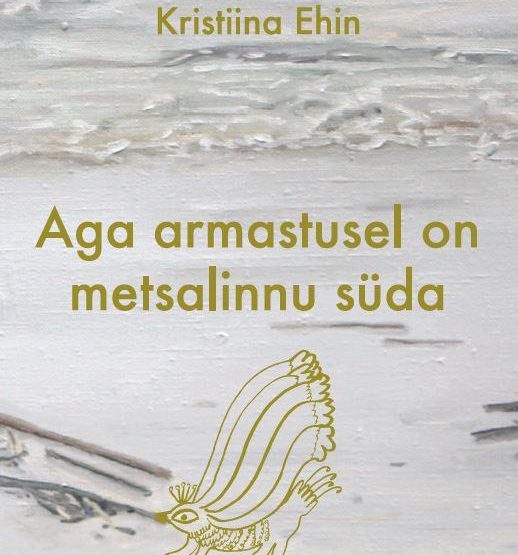Berk Vaher, Silmanurga taga (Behind the Corner of the Eye)
Elusamus 2018, 56 pp.
ISBN 9789949884346
The title Silmanurga taga (Behind the Corner of the Eye) is undoubtedly the first thing that nags at the reader when becoming acquainted with Berk Vaher’s latest poetry collection. As familiarity grows, its power to explain the poems arranged behind it is gradually revealed. Glimpsing something out of the corner of your eye means to hazily see what is happening on the fringes of your vision. Someone peering out from behind a corner wishes to catch a glimpse of something but is – for some reason – too scared to fulfill that desire at the cost of emerging. When someone hiding behind a corner speaks, the result is “round-the-corner”, or indirect speech (ümbernurgajutt); winding riddles that avoid saying anything directly. Lastly, on occasion, one can notice a tear treacherously glinting in the corner of an eye.
The main trepidation of Behind the Corner of the Eye is that when we externalize our inner world into a form of the visible world, such as by putting it into words, then its substance is altered beyond recognition. The flowing, multicolored, restless, and multiplicitous ego-ness – a flourishing scrub of selves (p 16) – is unable to find a worthily complex or flexible-enough existential opportunity. Thus, cast from his inner world, he leaps instead into a cynical world of style worn cliché-thin – one where focus is impossible – and as this understanding deepens, he becomes mired in bitter-ish self-irony. The ordinary power relationship between the word and its speaker is flipped: the words get ahead of the person and are too quick and false (p 48). When the writer asks “who am I to say” (p 53), the question’s usual rhetorical emphasis has shifted: it is not a polite retraction of the self, but rather a decision to embark into a frightening state of loss.
Vaher’s poems pant: the many mid-line breaks, pauses, spaces, unexpected transitions, and abandoned words indicate chaotic rhythm and a state of struggle. Pauses occasionally break up the lines of poetry into pieces so self-standing that they pull one’s gaze towards words in the upper or lower line rather than to their own. One can sense that, in doing so, the author is offering an alternative way of reading in order to somehow find space to breathe in the literary suit of armor.
Behind the Corner of the Eye comes off as cryptic and difficult to grasp, requiring consideration from several different angles to see around the corner of the desperate tone. Nevertheless, from the very first reading, it is clear that Vaher’s goal is not to torment readers or boast his textual might, but rather to guide them away from excessive simplicities, constricting specificity, and a stagnant perception of the world.
Maarja Helena Meriste (b. 1992) is a literary critic, editor, and is pursuing a master’s in literature at the University of Tartu. In 2017, Meriste received the youth literary magazine Värske Rõhk’s annual award for literary review.





